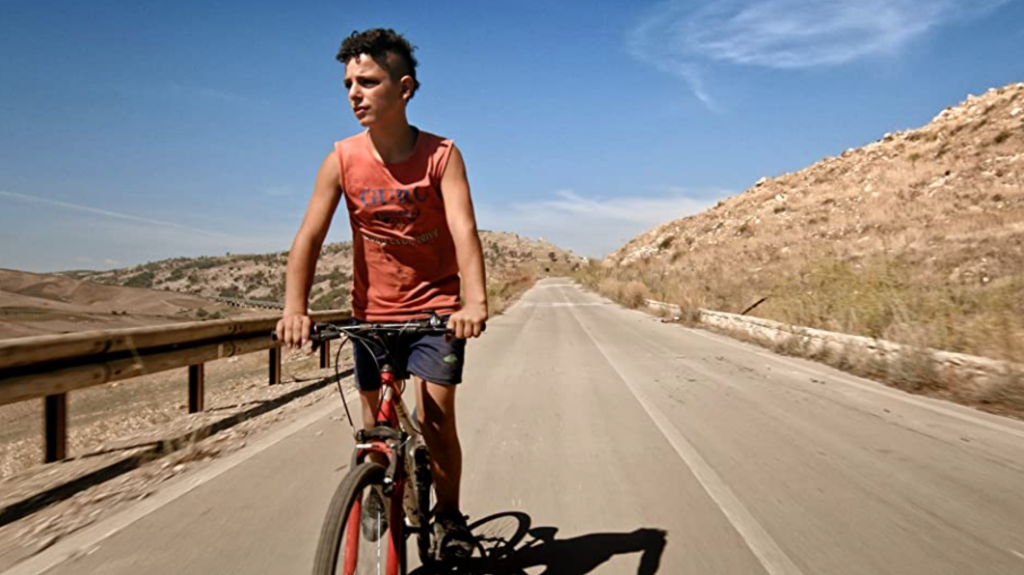Il Mio Corpo

The arid Sicilian landscape of Michele Pennetta’s docu-film Il Mio Corpo silently communicates all the discontent that the young director wishes to transmit. For those who inhabit the quiet part of the island depicted in the movie, stillness denotes stagnation, the parched earth speaks of scarce resources and the daily challenges of survival seem inescapable. Selected for Cannes’ ACID section, this is Pennetta’s third project focusing on the perspective of the lower, struggling classes.
The action is partially fictionalised but it recreates the realities of its protagonists who play themselves and retain their real names. The documentary looks at the parallel, separate lives of two teenagers whose circumstances are different but tinged with the same hue of melancholy and hopelessness. Oscar is a Sicilian boy who spends his days scavenging scrap metal with his bossy father and brother; Stanley is a young Nigerian migrant who helps the parish priest and, through him, gets odd jobs such as picking fruit or herding sheep. The former has many younger siblings and an aunt who came to live with the family because his mother is no longer in the picture; the latter shares a modest flat with a fellow Nigerian youth who is his sole friend and confidante, but who is at risk of deportation.
Both teens are introverted, humble and hardworking. They passively drift along the only path available to them, but their moments of silent reflection hint at relentless inner activity shaking their private worlds. Some aspects of Il Mio Corpo are comparable to Rosi’s Fire at Sea, the Lampedusa documentary juxtaposing the life of a local child with the experiences of the immigrants reaching the island by boat. While Rosi presents the two worlds as separate, Pennetta suggests that the frustrations, fear and sadness beneath the mask of outer circumstances are essentially identical. He deliberately adopts an understated approach, making the powerful stillness of the island seamlessly blend into the inaudible screams of those who inhabit it.
There are fleeting moments of joy, such as when the boys engage in sport, in which they seem to come up for air briefly before they are submerged into reality again. The intimate, domestic scenes never feel staged or inauthentic, and they subtly uncover a wider social desolation. Il Mio Corpo floats somewhere between drama and documentary, expressing a feeling rather than offering entertainment or facts. Every element comes together harmoniously to create an atmospheric, lyrical and bittersweet picture.
Mersa Auda
Il Mio Corpo is released digitally on demand on 11th December 2020.
Watch the trailer for Il Mio Corpo here:
























Facebook
Twitter
Instagram
YouTube
RSS